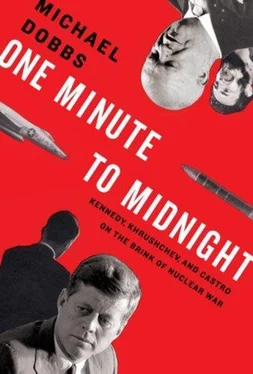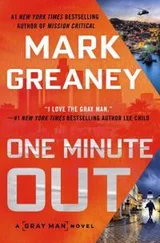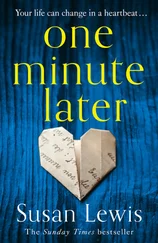With time running out, several copies of the letter were entrusted to the Communist Party secretary in charge of ideology, Leonid Ilyichev, who had responsibility for mass media. He ordered his chauffeur to drive as fast as he could to the headquarters of Radio Moscow, a forty-minute drive with little traffic. The black Chaika sped along the winding forest road connecting Novo-Ogaryevo to the center of Moscow, up the vast expanse of Kutuzov Avenue, past the Triumphal Arch commemorating Napoleon’s defeat in 1812, and across the Moscow River. When the militiamen saw the curtained Kremlin limousine approach, they waved other vehicles to the side of the road with their long white nightsticks. By disregarding all traffic regulations, Ilyichev reached the radio station in record time.
At the station, the announcers wanted more time to go over the script. They were used to getting scripts hours, sometimes days in advance, so they could perfect their delivery, striking the appropriate balance of pathos and ideological conviction. Known as diktors in Russian, the newsreaders were the voices of the Soviet state. Most of them were accomplished actors, trained by the famous Stanislavsky School in what was known as the Method. In order to seem sincere, an actor must completely live the part. If he can convince himself that he is hopelessly in love, he can convince his audience. Their voices dripped with pride as they recited five-year plans and steely indignation as they recounted the misdeeds of the imperialists.
The most famous diktor of all was Yuri Levitan. To hear his dulcet, authoritative voice was like listening to Big Brother himself. He had brought the Soviet people news of triumph and tragedy, victory and defeat, persuading them to put their faith in the Communist Party, whatever the circumstances. Levitan had announced the start of the war with Nazi Germany in June 1941 and the defeat of Nazism four years later. He had broken the news of the death of Stalin in 1953 and Yuri Gagarin’s space flight in 1961. It now fell to him to proclaim the end of Khrushchev’s great Cuban gamble.
Since the deadline was fast approaching, Ilyichev insisted that the diktors go on the air live, with no time to rehearse. Khrushchev’s message would be broadcast simultaneously in Russian and English.
“Govorit Moskva,” Levitan began—“This is Moscow speaking.” It was 5:00 p.m. in Moscow, 9:00 a.m. in Washington. He told his listeners he would read from a letter written by Nikita Sergeyevich Khrushchev, first secretary of the Presidium of the Communist Party and chairman of the Council of Ministers, to John Fitzgerald Kennedy, president of the United States of America.
The Soviet government, in addition to earlier instructions on the discontinuation of further work on weapons construction sites, has given a new order to dismantle the weapons you described as offensive, and to crate and return them to the Soviet Union.
Levitan managed to make this sound like yet another triumph for Moscow’s peace-loving foreign policy over warmongering imperialists. The supremely wise, always reasonable Soviet leadership had saved the world from the threat of nuclear destruction.
Khrushchev’s son Sergei had been waiting for his father at the family dacha when he heard the announcement over the radio. He was half-relieved, half-stunned by the turnaround. He would come to view his father’s decision in a much more positive light, but at this moment it sounded to him like a “shameful retreat.”
“That’s it,” he thought to himself. “We’ve surrendered.”
Other Soviet citizens were grateful that the nightmare was over. When Oleg Troyanovsky finally returned to his apartment after a week on duty at the Kremlin crisis center, he was shocked to discover that he had lost five pounds. When he told his wife what he had been doing, she gently reprimanded him. “If possible, the next time you want to lose some weight, find a safer way to do it.”
The five o’clock deadline turned out to be a false alarm. No new presidential address had been planned for that time. One of the American television networks had simply decided to rerun Kennedy’s October 22 speech. Khrushchev had been misinformed by his intelligence people.
The bells began going off on the news agency teletypes in Washington soon after 9:00 a.m. on Sunday morning. McGeorge Bundy was having breakfast in the White House Mess, down the corridor from the Situation Room, when an aide rushed in with a bulletin torn off the printer. He called Kennedy on an internal phone. The president was in his bedroom, getting dressed to go to church, as his national security adviser read the item from the Foreign Broadcast Information Service:
Moscow Domestic Service in Russian at 1404GMT on 28 October broadcast a message from Khrushchev to President Kennedy stating that the USSR had decided to dismantle Soviet missiles in Cuba and return them to the Soviet Union.
28 Oct 0908A
“I feel like a new man now,” JFK told Dave Powers after digesting the news. “Do you realize that we had an air strike all arranged for Tuesday? Thank God it’s all over.”
Other members of the ExComm were equally ecstatic. John McCone was on his way back from nine o’clock mass when he heard the news over the car radio. “I could hardly believe my ears,” he later recalled. The Soviet about-face was as unexpected as it was sudden. Donald Wilson “felt like laughing or yelling or dancing.” After several nights with little sleep, wondering if he would see his family again, he was suddenly lighthearted, almost giddy.
It was a gorgeous fall morning in Washington. The leaves on the trees had turned a brilliant red and the city was bathed in golden sunshine. Arriving at the White House, George Ball was reminded of a Georgia O’Keeffe painting of “a rose growing out of an ox skull.” Life had magically emerged from the shadow of death.
Bystanders noticed an extra spring in the president’s step as he leapt out of his black limousine at the Church of St. Stephen eight blocks from the White House. Just hours earlier, he had been calculating the odds of nuclear war, putting them at somewhere between “one in three and even.”
The mood was very different across the Potomac at the Pentagon, where the Joint Chiefs were busy refining their plans for a massive air strike against Cuba followed by an invasion. Curtis LeMay was already furious with Kennedy for postponing the planned attack until Tuesday. The Air Force chief wanted his fellow generals to go with him to the White House to demand an attack by Monday at the latest, before the missile sites became “fully operational.”
Tickertape of the Radio Moscow broadcast was distributed around 9:30 a.m. on Sunday. The chiefs reacted with dismay. LeMay denounced Khrushchev’s statement as “a charade,” and a cover for keeping some weapons in Cuba. Admiral Anderson predicted that the no-invasion pledge being offered to Cuba by Kennedy would “leave Castro free to make trouble in Latin America.” The generals were unimpressed by McNamara’s argument that Khrushchev’s concessions left the United States in “a much stronger position.” They drafted an urgent message to the White House dismissing the Soviet move as “an insincere proposal to gain time” and warning that “there should be no relaxation of alert procedures.”
“We have been had,” Anderson told Kennedy when they finally got together.
“It’s the greatest defeat in our history,” insisted LeMay. “We should invade today.”
Fidel Castro was at home in Vedado. He heard about the dismantling of the Soviet missile sites in a telephone call from the editor of Revolucion, Carlos Franqui. The Associated Press teletype was reporting the text of the letter from Khrushchev to Kennedy that had just been broadcast over Radio Moscow. The newspaper editor wanted to know “what should we do about this news?”
Читать дальше












